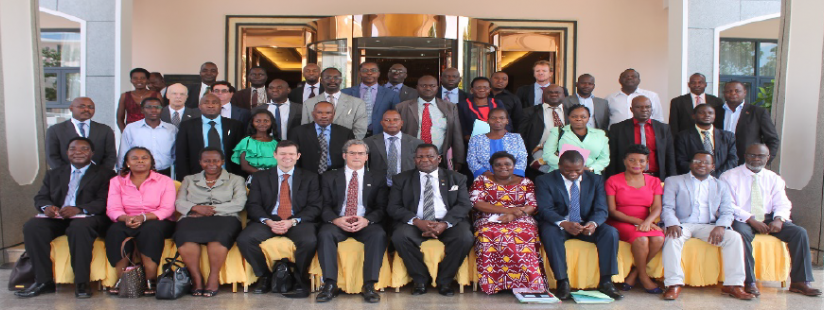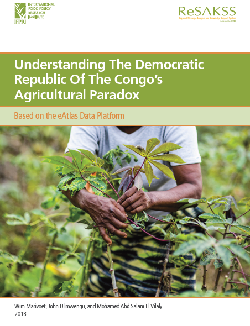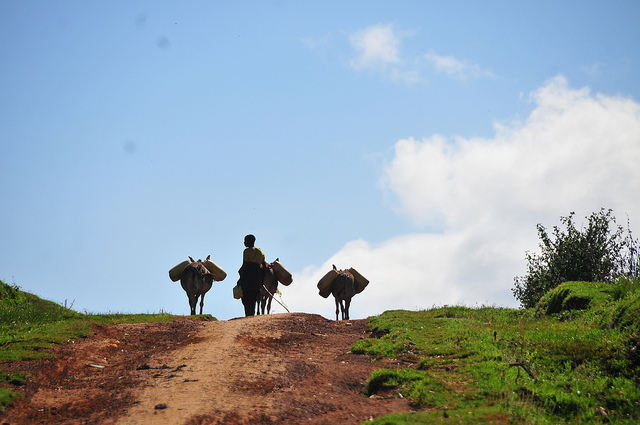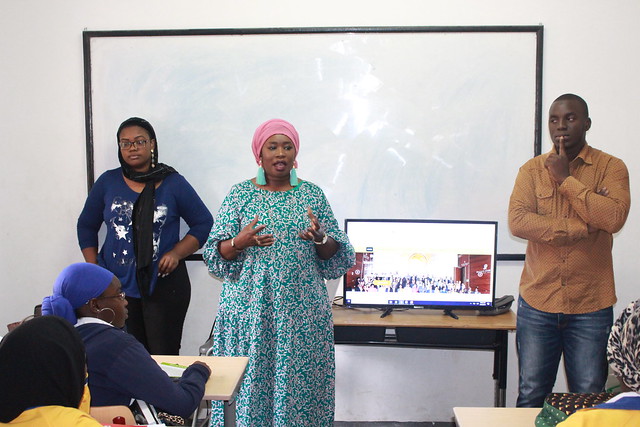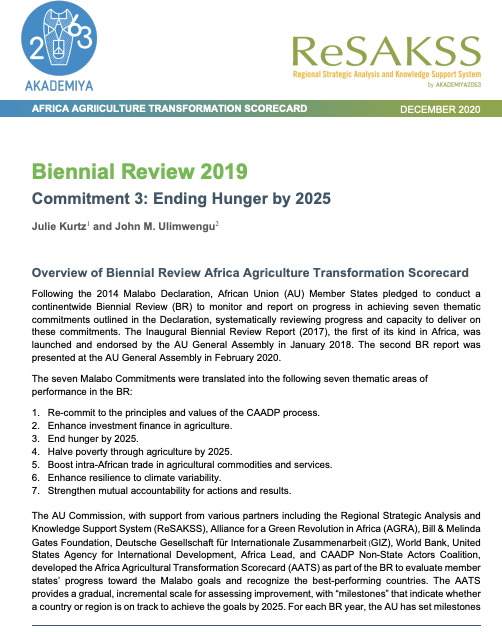Africa is constantly referred to as a continent that is “rising.” The World Bank predicts that in 2018, six out of 10 of the world’s fastest growing economies will be countries in Africa. Economic growth across 55 nations — home to Africa’s nearly 1.2 billion people — is steadily improving. However, not every person is “rising” in the morning with the strength of the continent’s roaring economies. According to the Food and Agriculture Organization of the United Nations (FAO), the rates of undernourishment across the continent are on the rise, “from 20.8 to 22.7 percent between 2015 and 2016,” and Africa’s total undernourished population, 224 million, now represents a quarter of the world’s entire population who are undernourished.
We have the resources to feed every man, woman and child in Africa, while also feeding people in global markets. It’s projected that our agriculture and agribusiness will grow from $300 million as it is now to be a $1 trillion industry by 2030. In large part, agricultural-led growth will be driven by smallholder farmers, who are 70 percent of the population and the largest private sector group in agriculture.
Yet, while the continent has almost half of the world’s fertile land, African nations spend nearly $35 billion on annual food imports. This figure is also “rising,” estimated to reach $110 billion by 2025. Demand for food is also on the rise, set to double by 2050.
We can and must do better. That’s also what the Africa Agriculture Transformation Scorecard (AATS) and the Inaugural Biennial Review Report released by the African Union (AU) this past January, tells us. The report, based on self-reporting on 43 indicators across the seven commitments of the Malabo declaration, showed that less than half — 20 out of 47 AU member states that reported — are on track to meet the Malabo Declaration goals and targets by 2025; commitments such as spending at least 10 percent of public expenditure on agriculture, achieving six percent annual growth in the agricultural sector, reducing post-harvest losses by 50 percent, tripling intra-African trade in agriculture and reducing malnutrition to less than 10 percent, all by 2025.
The scorecard also revealed that each country is facing different challenges, which are specific to their context. That’s why for each country profile in the report, we make three recommendations on what they need to do to stay on track or where they need to improve to meet the Malabo targets. Most importantly, the scorecard is a transparency mechanism to drive transformation. It encourages heads of states and governments to assess original commitments made versus performance. Available to all stakeholders in agriculture — government ministries, private sector companies, civil society, farmer organizations, development partners and citizens — we hope the report will stimulate dialogue, collaborative problem solving and a more inclusive African-led process to increase investment in agriculture.
At the continental-level though, collective action is also critical. To address intra-African trade, grow agro-industry and agribusiness, and spur trade and employment opportunities, we are calling for greater attention and action from member states to create a policy environment for private investment, boost regional trade for agricultural commodities by increasing local processing of key agricultural products, facilitate increased consumption of locally and regionally produced commodities and achieve self-sufficiency and lowest possible importation of key agriculture commodities.
To do this, member states will need to mobilize technical and financial investments from both public and private sectors, intensify efforts to facilitate peer-to-peer learning networks among the government ministries (including national bureaus of statistics), mobilize adequate technical and human resources for comprehensive assessment of existing data management capacities and institutionalize the biennial review mechanisms and the Africa Agricultural Transformation Scorecard.
The path to achieving these goals can be addressed through three critical steps: African governments must develop our own agendas, finance our own development programs and rely on our own human capacity to plan, report on and execute these priorities. The African Union Commission and the AU’s New Partnership for Africa's Development (NEPAD) agency are working with the regional economic communities to support AU member states to domesticate the Malabo commitments in their national agriculture investment plans (NAIPs). The target is to have at least 20 Malabo-compliant NAIPs completed by mid-2019. Supported by programs like Feed the Future and USAID’s food security capacity building program, Africa Lead, African agriculture can ensure a food secure continent.
USAID Administrator Mark Green has already become well known for his statement, “I believe the purpose of foreign assistance should be ending its need to exist.”
There’s more to the quote though.
He continued, “Each of our programs should look forward to the day when it can end. And around the world, we should measure our work by how far each investment moves us closer to that day.”
Let’s add to that. Beyond USAID’s programs, we as USAID’s African partners should also measure ourselves against whether or not we are reliant on external development partners. And we and our partners in Africa should know when we’re self-reliant and doing our job — when it is our children that are rising everyday well-nourished, not just the continent’s economic forecasts.
Dr. Godfrey Bahiigwa is Director of Department of Rural Economy and Agriculture of the African Union Commission
Read the original blog here
